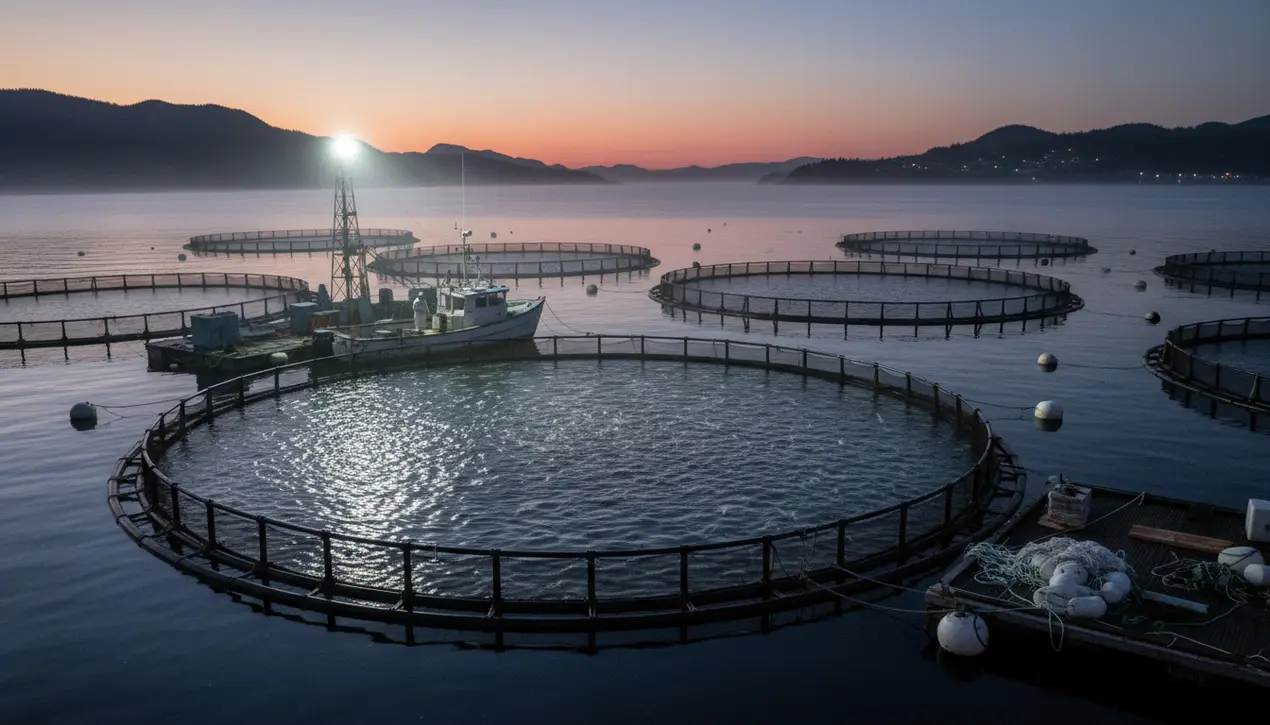
SciencebiologyMarine Biology
The Salmon Dilemma: Can We Farm Our Way to a Sustainable Future?
RA
Rachel Adams
5 hours ago7 min read2 comments
With the global population projected to reach 10 billion by 2050, the pressure to find sustainable food sources is intensifying. Aquaculture, and specifically salmon farming, has been promoted as a key solution—a method of producing animal protein with a significantly smaller land footprint than traditional livestock.It is the world's fastest-growing food production sector. However, a closer examination reveals an industry grappling with significant environmental and ethical challenges.The scale is immense: the average American eats 3. 2 pounds of salmon per year, and more than 70% of it comes from densely populated underwater net pens in countries like Norway, Chile, and Scotland, not from wild fisheries.This industrial production, which yields over 3 million tons of salmon annually, creates a domino effect of ecological issues. Localized pollution is a primary concern, where concentrated fish waste and uneaten feed create oxygen-depleted 'dead zones' on the seafloor.Furthermore, the crowded conditions are a breeding ground for diseases and parasites, particularly sea lice, which can decimate vulnerable wild salmon populations swimming near farm sites. The most systemic problem may be the feed supply.Salmon are carnivorous, and farming them requires massive harvests of wild forage fish like anchovies to produce fishmeal and oil. This practice of diverting fish from the base of the marine food web to produce a high-end protein raises critical questions about resource efficiency and places additional stress on ocean ecosystems.Industry advocates, including the Global Salmon Initiative, point to ongoing innovations such as alternative feeds made from agricultural byproducts and the development of land-based 'closed containment' systems as pathways to a cleaner future. Yet, these technological solutions are expensive and energy-intensive, and they do not fully resolve the ethical concerns of confining migratory species for their entire lives.The future of salmon farming is not a simple choice between right and wrong, but a complex assessment of trade-offs. It calls for a more conscious consumerism that demands transparency and considers the full environmental cost behind every meal.
#aquaculture
#salmon farming
#sustainability
#food production
#environmental impact
#featured
Stay Informed. Act Smarter.
Get weekly highlights, major headlines, and expert insights — then put your knowledge to work in our live prediction markets.
Related News
Comments
Loading comments...
© 2025 Outpoll Service LTD. All rights reserved.